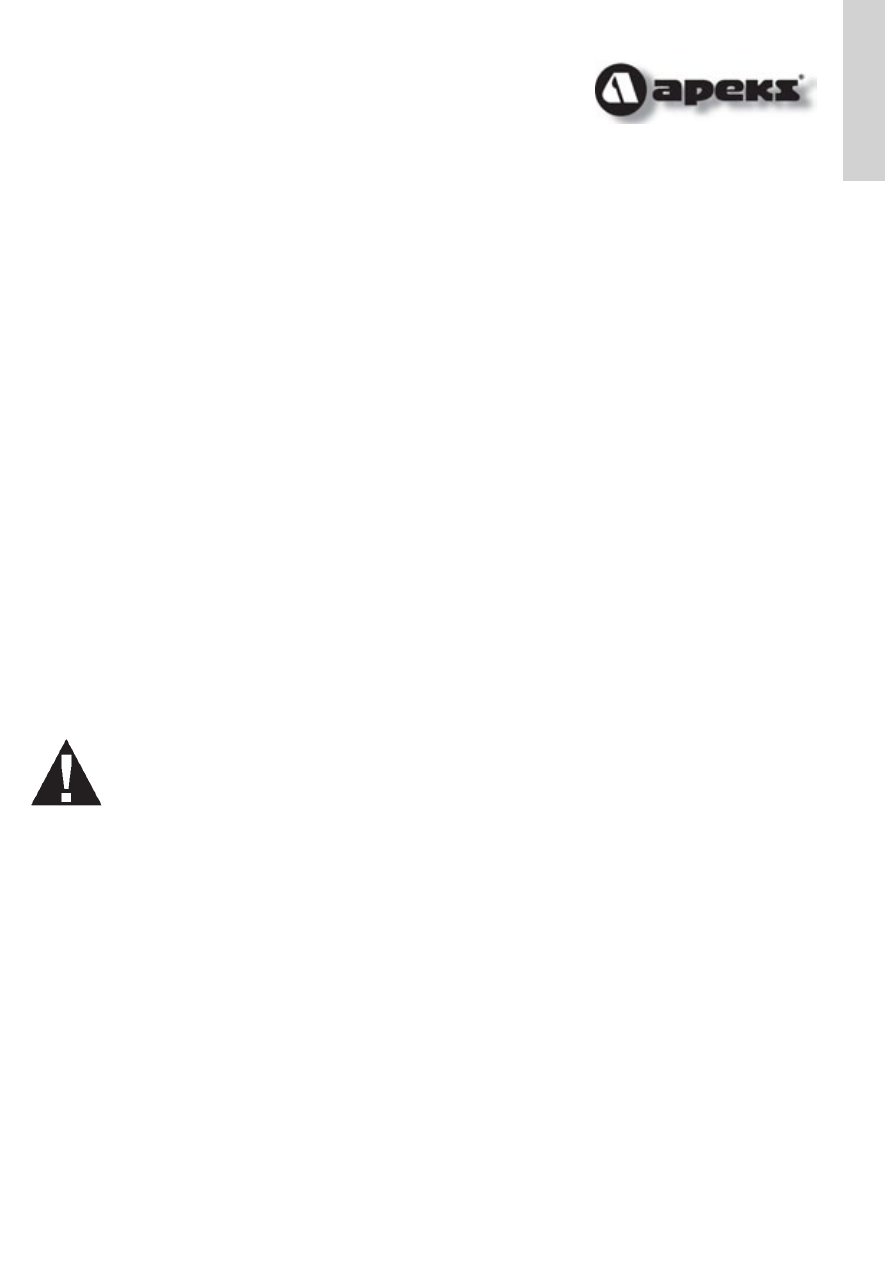Diving with your regulator, Pre-dive inspection checklist – Aqua Lung Apeks Regulator User Manual
Page 31

US
31
DIVING WITH YOUR REGULATOR
Before each use, it is important to perform a complete pre-dive
inspection of your regulator. NEVER dive with a regulator that shows
signs of damage or unsatisfactory performance until it has received
complete inspection and service from an authorised dealer.
Pre-Dive Inspection Checklist:
1. Carefully inspect all hoses at their fittings to ensure they are
securely connected into their respective ports on the first stage.
Inspect the length of each hose to ensure that the hoses are
not blistered, cut, or otherwise damaged. If hose protectors are
present, slide the protectors back to expose the hose fittings, and
inspect the hoses as described above.
2. Visually inspect both the first and second stage regulators for any
signs of external damage.
3. Environmentally sealed first stages only: Closely inspect
the external sealing diaphragm for any signs of damage or
deterioration that may cause leakage. Check to ensure that the
retainer which holds the external diaphragm in place is tightly
secured.
WARNING: If the external diaphragm shows any signs of
damage or neglect, DO NOT attempt to dive with the regulator
until it has received factory prescribed service from an
authorised dealer. The regulator’s performance may be
compromised, and first stage freeze-up could occur in cold
water conditions.
4. Connect the first stage regulator to a fully charged SCUBA
cylinder. (For mounting instructions, read the Setup section on
pages 15-19.) SLOWLY open the cylinder valve to pressurise the
regulator. Continue turning the valve anti-clockwise until it stops.
This is to ensure that the valve is completely open.
5. If present, turn the inhalation control knob completely “out” (anti-
clockwise), and then back “in” (clockwise) until the regulator
provides maximum ease of breathing with no leakage present. Do
not apply excessive pressure.
Regulator Owner’s Manual
............................................................................................
